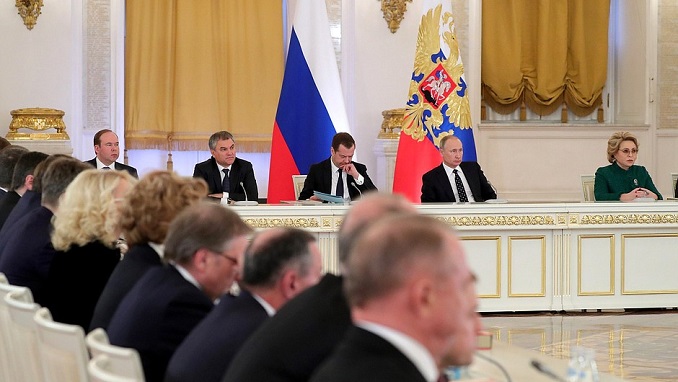The Russian government has been making promises of a tax holiday to tempt unregistered Russian firms to come out of the shadow economy and eventually pay taxes to the state, but Moscow’s track record as far as keeping its promises means that very few firms have taken up its offer, official statistics show.
Also, the Russian government has added not only to the financial burdens of being registered with the state but also introduced a large number of new and burdensome reporting requirements that mean firms operating outside of its purview feel they are better off to remain there, analyst Paul Goble writes in an op-ed piece for think-tank Eurasia Review.
As Moscow commentator Vsevolod Istomin puts it, “Moscow has succeeded in creating an extremely unwelcoming business climate, one in which firms that do try to play by official rules are increasingly likely to be bankrupted or driven right back into the shadow economy.”
Russia has been trying for the last several years to get firms to register with the state by threatening them with enormous fines. Now the Russian government decided to try the carrot of promising a tax holiday. Duma deputies favor the idea but neither they nor the businesses affected trust the government to keep its word.
As a result, despite these proffered incentives, Istomin says, only 936 companies chose to come out of the shadows, despite the fact that there are hundreds of thousands of such firms employing from 15 to 20 million people and supporting twice as many other Russians in addition.
Even Tatiana Golikova, the head of the Accounting Chamber, acknowledges that “people do not believe” what the government is promising, and it is quite clear, the commentator says, that at the same time, “citizens don’t believe that the authorities are capable of forcing them to share their modest incomes” with the state whatever the threats the regime makes.
In 2010, there were 4.6 million small and mid-sized enterprises with 19 million workers in Russia. By the start of 2017, the 5.8 million firms employed only 15.8 million people.
A year earlier, Istomin says, the number of firms forced out of business exceeded the number of new businesses created by almost a third of a million: 781,000 businesses ceased to exist, and only 498,600 were created. Still worse, the total number of firms disbanded was 2.4 times greater in 2016 than in 2015.












